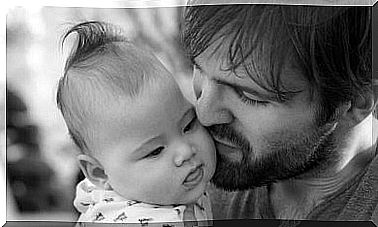Understand Baby Sleep From 4 To 6 Months

To regulate your sleep and sleep well, your baby will need your help . From 4 months onwards, babies sleep an average of 14 hours a day.
A 4-month-old baby can sleep eight hours straight without food. At 5 months you can sleep between 10 and 11 hours. And by the time you’re 6 months old you’ll need an average of 11 hours of uninterrupted sleep through the night and a few naps during the day.
But every baby is different. So if your child sleeps less or more than these hours you shouldn’t worry. Each baby will need more or less time to feel rested and energized. A 4-month-old baby who sleeps 8 hours at night without food cannot be normal. Every baby is different and you must respect their biological rhythms.
Is it time for a change of room?
When babies are between 4 and 6 months old, some parents prefer to move them into a room so they can have their own resting place and to create good sleep routines. But this is something relative. Not all parents choose to make this change so soon and prefer to wait. This is a very personal decision and you will need to weigh the options depending on your space at home and your personal (and baby’s) needs.

Sometimes the decision to move a baby to another room is because of tiredness. A parent could sleep with their baby much longer if need be. But sometimes fighting fatigue can become a very difficult mountain to climb. Prolonged exhaustion can be a risk factor for depression.
Establish routines and be consistent
In order for the baby’s internal clock to adjust properly, it will be necessary to create a daily routine and make it happen each day. Babies need to feel safe, know what’s going to happen next, so they can predict it and know when to sleep.
That’s why it’s important to have a set time for the baby to sleep. Routines should accompany them throughout their childhood. Once the internal clock starts to balance, you will notice how your baby will start to know when to sleep or will even be able to ask with some signals (rubbing eyes, yawning…).
don’t forget the naps
At naptime, babies should not sleep in total darkness because then it could be confused with bedtime at night. It is also not necessary for the house to be completely silent when the baby sleeps, because that way he will know that it is daylight and that the longest time for sleep has not yet arrived.
Also, it ‘s important to respect babies’ naps because they get enough sleep. Never wake him up to nurse and let him sleep as long as he needs to. Breastfeeding when your baby asks for you in the first few months of life is ideal as they know how to regulate when they are hungry or when they prefer to stop eating.

Recognize the signs of sleep
When a baby is between 4 and 6 months old, it’s very important to recognize the signs that tell you he’s ready to go to sleep. It is very important to know this so that you can create healthy sleep habits and make your baby feel happier. When your child tells you that he is sleepy without words is when he makes these signs:
- Staring or staring at a point
- To yawn
- Scratch the eyes
- Losing interest in interacting with people or toys
- be irritable
- To cry
- tantrums
All these signs will be telling you that your child is sleepy and wants to rest as soon as possible. That’s why it’s very important that you take them into account every day. Thus, by understanding your baby’s sleep patterns, you will help him to regulate thanks to routines. Once you begin to understand what the obvious signs are that your baby is tired and would rather sleep than stay awake, you will see how predictable your baby’s sleep will be.









